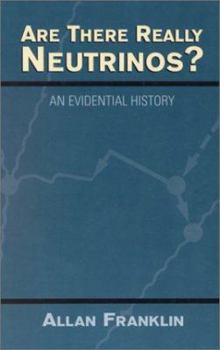Are There Really Neutrinos?: An Evidential History
Select Format
Select Condition 
Book Overview
In this intriguing and accessible book, Allan Franklin argues that science is a reasonable enterprise that produces knowledge of the physical world based on valid experimental evidence and critical discussion. He does this by looking at the history of the neutrino, which he traces from the discovery of radioactivity to recent experiments on neutrino oscillations. He argues that this history has given us good reason to believe in the existence of the neutrino, a particle that interacts so weakly with matter that its interaction length is measured in light years of lead. If science can provide evidence for the reality of such an elusive particle then we can reasonably conclude that it provides us with knowledge.
Format:Hardcover
Language:English
ISBN:0738202657
ISBN13:9780738202655
Release Date:November 2000
Publisher:Westview Press
Length:371 Pages
Weight:1.45 lbs.
Dimensions:1.0" x 6.3" x 9.5"
Customer Reviews
1 rating
Science and logic
Published by Thriftbooks.com User , 20 years ago
Look, let it be said upfront that no physicist credibly doubts that neutrinos exist. A couple of Nobels have been awarded to Cowan and Reines for in fact detecting these.But Franklin has chosen neutrinos as a pedagogic vessel. He shows how in the early years, when neutrinos were first postulated, in order to "save" the law of conservation of energy, that the evidence for them was indeed flimsy. Not totally lacking, but sketchy. A touch of faith was required.He traces the history of neutrino research, and shows how, painfully slowly, evidence was accumulated. Along the way, you can see scientific logic in action, not just in one scientist's work, but in an entire community.






